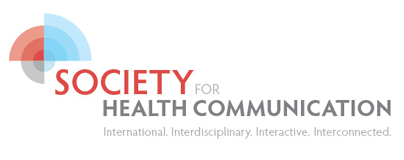Medical Writing Courses That Can Help You Advance in Your Career
Originally published on: July 15, 2019
Until recently, most writers in the field of medical communication entered the field without formal training. Some started out with scientific or medical degrees and previously worked as scientists, physicians, or pharmacists before transitioning into medical writing. Others began as journalists and built a career by writing about health and medicine.
Now, you can start a career in medical communication by taking medical writing courses that culminate in a degree specific to this field. You can also advance in the medical writing field by going back to school and earning an undergraduate or graduate degree.
Which degree programs include medical writing courses?
Most degree programs in medical writing culminate in one of the following degrees.
- Master of Arts
- Master of Science
- Bachelor of Arts
- Bachelor of Science
The specific degree you will earn by taking medical writing courses depends on which institution and program you graduate from. You should choose a program that matches your specific interests and strengths in the medical communication field. Following are some of the descriptions used by academic institutions to describe their programs that include medical writing courses; these can be bachelor’s or master’s degrees.
- Biomedical Writing
- Health Communication
- Health and Environmental Reporting
- Journalism
- Medical Science and Journalism
- Professional Writing
- Science Communication
- Science—Medical Writing
- Science/Professional Writing
- Science and Technology Journalism
- Technical Communication
- Technical Writing and Communication
If you’re not looking to pursue a degree but still want professional training in medical writing, a medical writing certificate might be a good fit for you.
Why take a medical writing course?
Medical writing requires specialized skills and knowledge that can’t be obtained through general writing classes. Many successful medical writers continue to hone their skills by taking medical writing classes even in the middle or later stages of their careers.
If you’re looking to enter the field of medical writing, taking a medical writing course can help you because
- Medical writing courses equip entry-level writers with the specialized skills, knowledge of medical concepts and terminology, and relevant guidelines they need to write accurate scientific content.
- Medical writers need to be able to understand how to research and present medical literature in a way that suits their intended audience (physicians, patients, or the general public).
- The medical field is constantly changing; medical writers need to stay current with the newest research and guidelines to effectively communicate complex medical information.
- Medical writing courses will hone your ability to write grammatically correct, concise, and clear language.
In addition, by taking courses with other medical communication professionals, entry-level writers will get the opportunity to meet and network in their community. The relationships built with classmates and instructors can lead to potential jobs or connections that will further your career down the road.
Where are medical writing courses offered?
Academic institutions offering medical writing courses are located across the country, and some are offered online. A list of these institutions is included in the Ultimate Guide to Becoming a Medical Writer.
What will I learn in a medical writing course?
If you want to work in a specific area of medical writing, you will need to research whether the program you’re considering offers courses in that area. Look at the descriptions of the courses required to earn the degree as well as additional courses you can elect to take.
In addition to any special topics that apply to a specific job you want to pursue, you should make sure that the following topics are covered in your medical writing courses.
- Principles of good writing
- Medical terminology
- Literature and reference searching
- Interpretation and presentation of research data
- Ethics and legal issues
- Statistics and technical guidelines
How else can I learn about medical writing?
Medical writing courses aren’t the only way to develop your skills as a medical writer. You can also earn a medical writing certificate, attend a medical writing conference or workshop, or sign up for online learning sessions and webinars available from the American Medical Writers Association.
